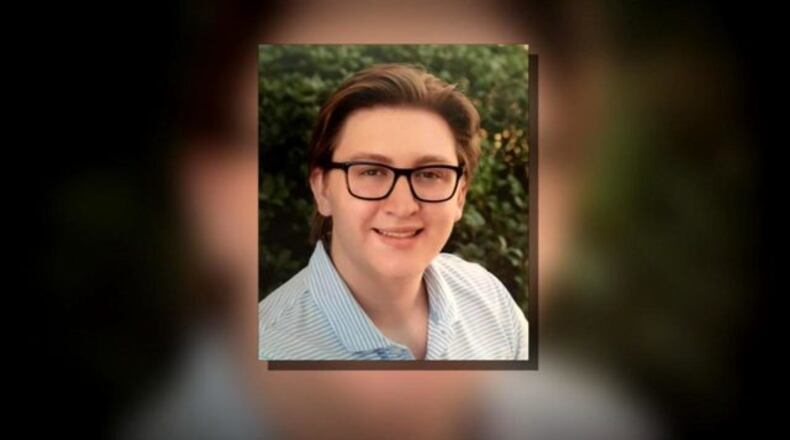The parents of a Roswell teen who died from fraternity hazing want a tougher law in Georgia to prevent other deaths.
A 2017 graduate of Blessed Trinity High School, Max Gruver chose Louisiana State University for its journalism program. His mother and father testified today on Senate Bill 423, the Max Gruver Act, which intensifies penalties and fines for college hazing.
Mom Rae Ann Gruver described an 18-year-old with a close bond with his younger brother and sister who left for Louisiana State University in August of 2017 eager to start the next chapter of his life.
He chose to pledge Phi Delta Theta, which appeared to have a clear record regarding hazing and alcohol, with the hopes of making friends at such a big university. But Max died just 29 days into his freshman year, due to alcohol hazing. He was one of four U.S. students to die in 2017 from fraternity hazing.
Sponsored by Sen. John Albers, R-Roswell, SB 423 establishes criminal penalties for anyone who carries out a hazing ritual and requires colleges to report and make available information on hazing violations.
If a hazing incident leads to death or serious bodily injury, penalties would escalate to a felony with fines up to $200,000. The bill establishes standards and reporting requirements for campuses to document hazing incidents. The Louisiana Legislature already toughened its laws in 2018 with passage of the Max Gruver Act.
Max's father Steve Gruver said Phi Delta Theta claimed to have an alcohol-free house and a blanket anti-hazing policy. But the frat had a string of violations that neither Max nor his parents were aware of, he said. SB 423 would ensure parents knew a fraternity or sorority's history.
"This is an outstanding bill that will help act as a deterrent to end hazing," said Steve Gruver, who, along with his wife, started the Max Gruver Foundation to combat hazing.
The night Max died has been described in horrific detail in the court case of a frat member charged in the teen's death. In July, Matthew Naquin, 21, was convicted of negligent homicide and sentenced to five years in prison, but a judge suspended all but 2½ years of the term. Naquin began serving his sentence Jan. 17.
Max’s mother shared some of the details of her son’s last night in her testimony. Max and other pledges arrived at Phi Delta Theta on a Wednesday for an initiation ritual known as “bible study,” an escalating series of humiliations and tests, one of which required them to answer questions about the history of Phi Delta Theta and the Greek alphabet. When they missed, the teens had to drink a pull of grain alcohol.
By evening’s end, Max, who was singled out for abuse and scorn by Naquin, according to court testimony, consumed 32 ounces of 190-proof alcohol, said his mother. Despite obvious signs of medical distress including labored breathing, blue lips, clammy skin and slowing pulse, Max was left on a couch until the next morning when it was too late.
“No one called 911,” said his mother, which prevented her son from getting the medical intervention that could have saved him. “These brothers were more concerned about themselves than Max’s life,” she said.
The next day, fraternity members cleaned up evidence of the drinking ordeal and called Max’s close friends to take his body to the hospital with instructions about the lies to feed authorities.
Rae Ann Gruver urged lawmakers not to wait until the tragic death of a Georgia student to adopt stricter regulations, telling them, “Let us start saving lives here in Georgia with stronger hazing laws.”
About the Author
The Latest
Featured



